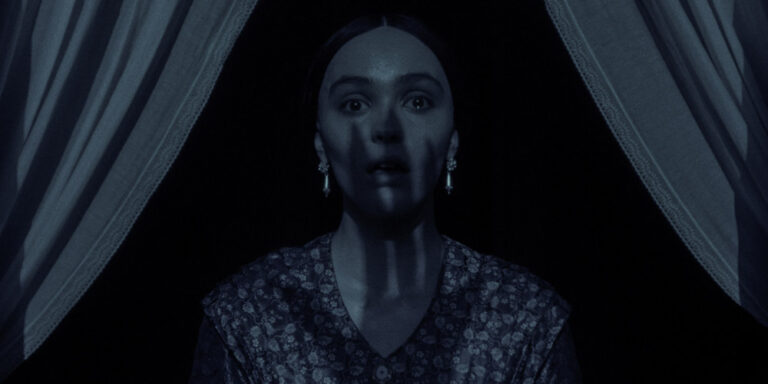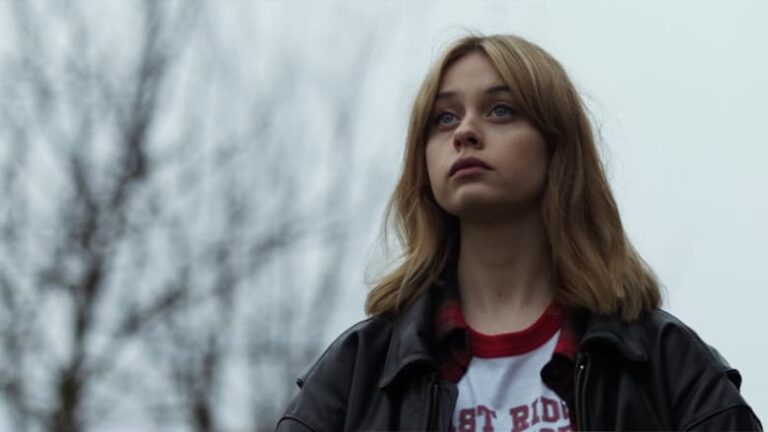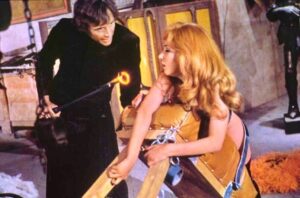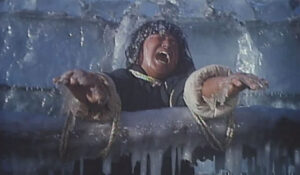Directed by Luca Guadagnino
Written by Justin Kuritzkes
Starring:
- Zendaya as Tashi Donaldson
- Mike Faist as Art Donaldson
- Josh O’Connor as Patrick Zweig
Rating: ![]()
Too much adventurous filmmaking unfolds on the swelteringly hot tennis court alone to pinpoint what I admired most about this enthralling sports movie that rarely has anything to do with the sport itself, but rather the people who play it. It’s easy to identify where acclaimed director Luca Guadagnino aims to go and how he intends to get there as he approaches the torrid love triangle at the center of this tale of sexual and athletic competition along the lines of a sexy human anatomy class taught under the high intensity of endurance training. But still, even if I have some inkling of what Guadagnino is up to with this wildly unorthodox approach to staging something unambiguously mainstream, I’m not very comfortable with saying if this is this, and that is that. Mainly because the game looks so much more deviously compelling the less you think about it and the more you feel it. First and foremost, this is pure sensory cinema made by a cineaste who is superb at it. But then it’s also fairly shallow cinema, in which I think I’ve learned more about bodily aesthetics than about the actual characters; heck I don’t even think the script cares about telling an actual story.
Part of the fun, of course, is that the volatile entanglements involving Patrick (Josh O’Connor), Art (Mike Faist) and Tashi (Zendaya) are introduced, fleshed out and unraveled in a non-linear storytelling, where through precipitous cuts we discover a series of temporal and geographically lopsided events that lead these three characters to experience all sorts of contentious emotions. The majority of these adversarial feelings arise in intimate settings, but they manifest themselves in their sweatiest and most aggressive manner on the playing field. Patrick and Art are the ultimate contrast of personalities, they can be seen as good friends as they can be seen as arch enemies, they have all the traits to be both. They both fall madly in love with Tashi, a talented tennis player who happens to have as much athletic prowess as she has to captivate without doing pretty much anything but being her. They meet at the US Open Tennis Championships. There they have an eventful, but anti-climactic, rendezvous. But Tashi is too sly to be stuck in a naughty threesome, and the two boys are too prideful to be part of the sex romp; only one of them can stay with her. It all comes down to the tennis court.
The plot takes us from that junior championship to college tennis at Stanford University to then witness the apotheosis of these liaisons taking place on the ATP Challenger Tour, where Patrick and Art face each other in a match once again. Watching these leaps back and forth is engaging, I have no complaints. But seldom does anything happen within this narrative that hasn’t already happened. And I believe that’s deliberate, at least from the standpoint of Justin Kuritzkes’ somewhat wonky writing. But you know what? I’m utterly grateful that it’s this bland, because only then does Luca Guadagnino have the leeway to put all his attention to the corporeal canvas and not give a fuck about who these characters are, how they think, and what they want – particularly the latter of which is maddeningly ambivalent. It’s a work of bisexual voyeurism that doesn’t need anything carnally explicit to render its healthy sexual fixation on the characters as something transcendent in the over-the-top framing. Just a two-shot frame of Josh O’Connor and Mike Faist munching on churros in tandem is enough to tell you that it’s all implicitly lecherous. For a movie that feels so erotic, there are way too many people wearing clothes and virtually no sex. This is the mischievous, quasi-elliptical vibe that pervades the film as if it were a titillating gag. It all comes to an abrupt end. Guadagnino crafts his enticing mise-en-scène to the point where it takes our breath away and once he gets us excitedly sweating in anticipation of what we all have in mind is going to transpire, he wickedly cuts away and leaves us with a string of potent emotional bathos that shockingly do the trick.
The good-looking trio at the service of the throbbing audiovisual techno rhythm of the sexless erotica appear and above all move gracefully well. But it is Zendaya who leverages best the fluency and agility of the stage. Just as the filmmakers of Challengers harness the visual panning nature of a tennis match, Zendaya seems to grasp better than her two co-stars (who are also competent but are more aesthetics than drama) the visual subtext of the sex play by fleshing out her character from both inner and outer angles. She scintillates and her self-assurance is infectious. However it is one of those characters that operates from the emotional collectivity of two characters, the performances function from the affective geometry of a passionate triangle. It is a supreme treat to behold how the courtship between these three characters becomes both an expression of parasitic narcissism and a showcase of egos loving and hating each other all at once. A sizzling combo.
Instant classic or not, it is mind-bogglingly odd that a mainstream movie that taps into such contemporary sentiments and appeals to the masses can contain so much artistry and cinema within its imperfectly baroque framework. Perhaps Challengers’ biggest challenge is keeping the flesh moist and the sweat cool without actually being pornographic but still managing to feel extremely horny by being unsubtly subtle. Exhilarating moviemaking that only time will truly show if it was a game-changer for mainstream cinema. But for now, at least we can safely conclude that it’s damn good.









